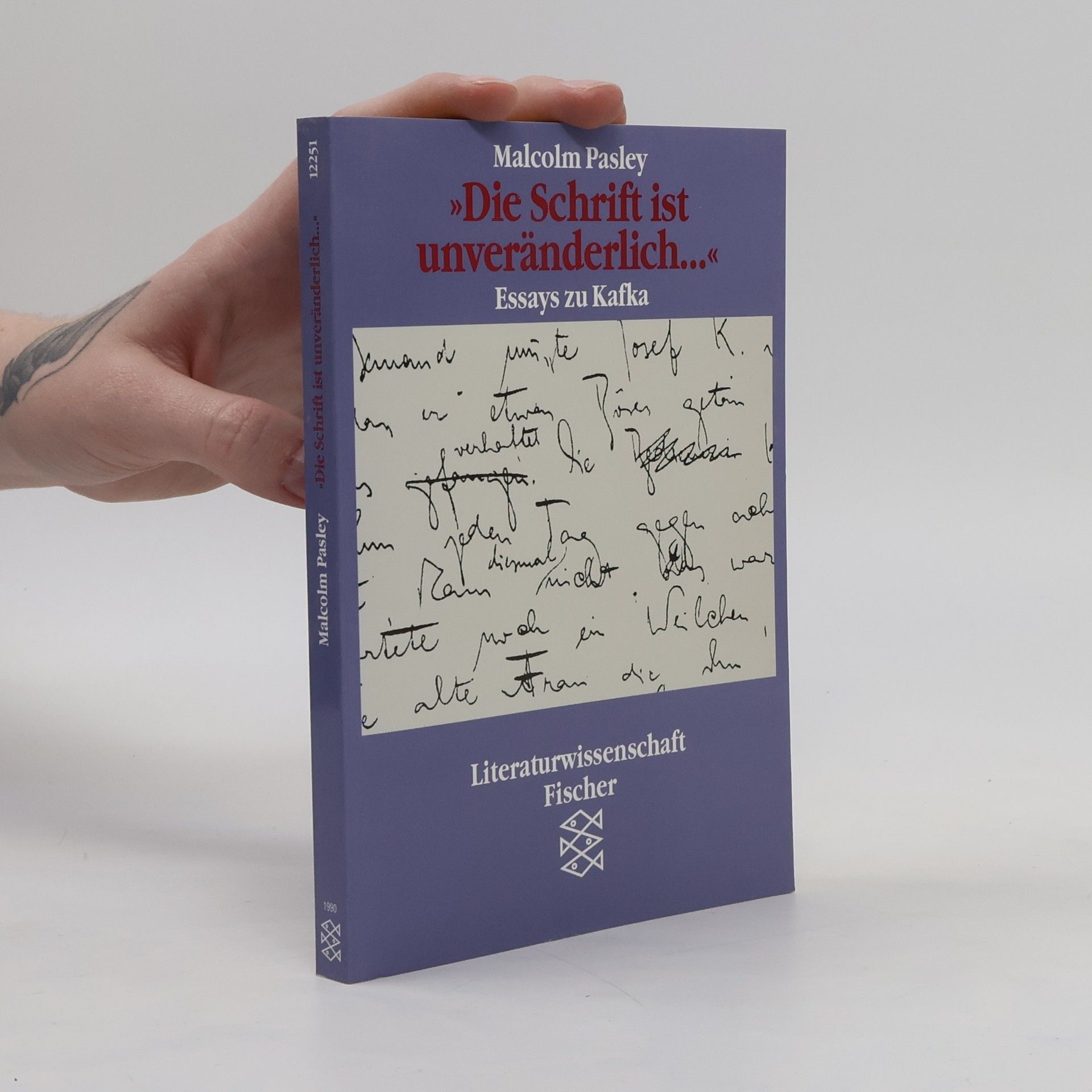This volume contains the major short works left by Kafka, including Blumfeld, an Elderly Bachelor, The Great Wall of China and Investigations of a Dog, together with The Collected Aphorisms and He: Aphorisms from the 1920 Diary.
Malcolm Pasley Libri
Sir John Malcolm Sabine Pasley è stato un letterato e membro della British Academy, rinomato per il suo lavoro dedicato alla pubblicazione degli scritti di Franz Kafka. Dopo lunghe trattative, prese possesso personale dei manoscritti di Kafka che erano stati affidati a Max Brod. Nel 1961, Pasley facilitò il trasporto di queste importanti opere letterarie dalla Svizzera alla Bodleian Library di Oxford. I suoi sforzi accademici furono fondamentali per la conservazione e la diffusione dell'unic legacy letterario di Kafka.




Scritto intorno al 1922 e pubblicato postumo da Max Brod nel 1926, "Il castello" è l'ultimo romanzo di Franz Kafka. L'agrimensore K., "emergendo da un vuoto di antefatti o di preistoria personale simile a un banco di nebbia", come scrive Italo Alighiero Chiusano nell'introduzione, arriva in un villaggio sormontato da un castello. K. è lì per esercitare la propria professione, ma ciò gli è impedito dall'ostilità degli abitanti e dagli ostacoli frapposti dalla burocrazia del Castello, sfuggente e inafferrabile per la sua meticolosa e arbitraria complessità.
Přátelství. Korespondence
- 453pagine
- 16 ore di lettura